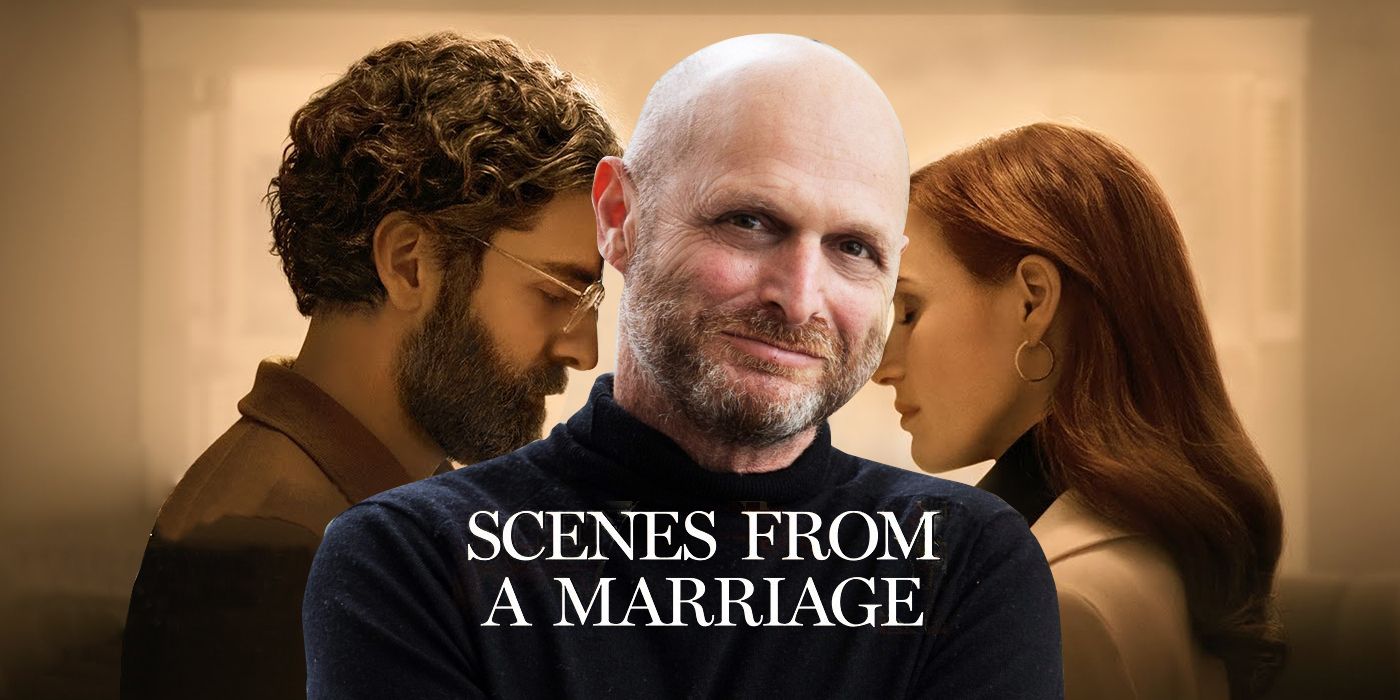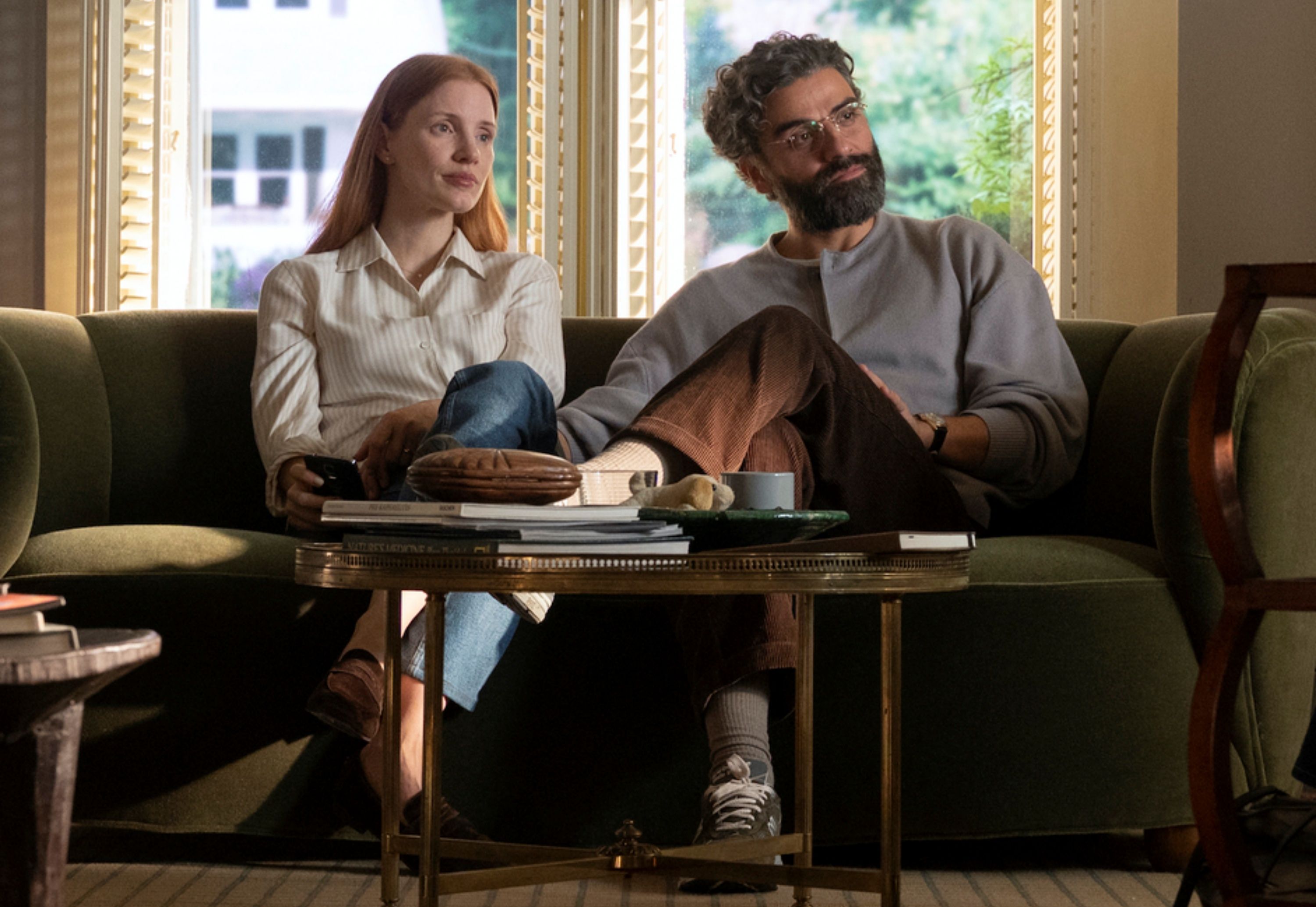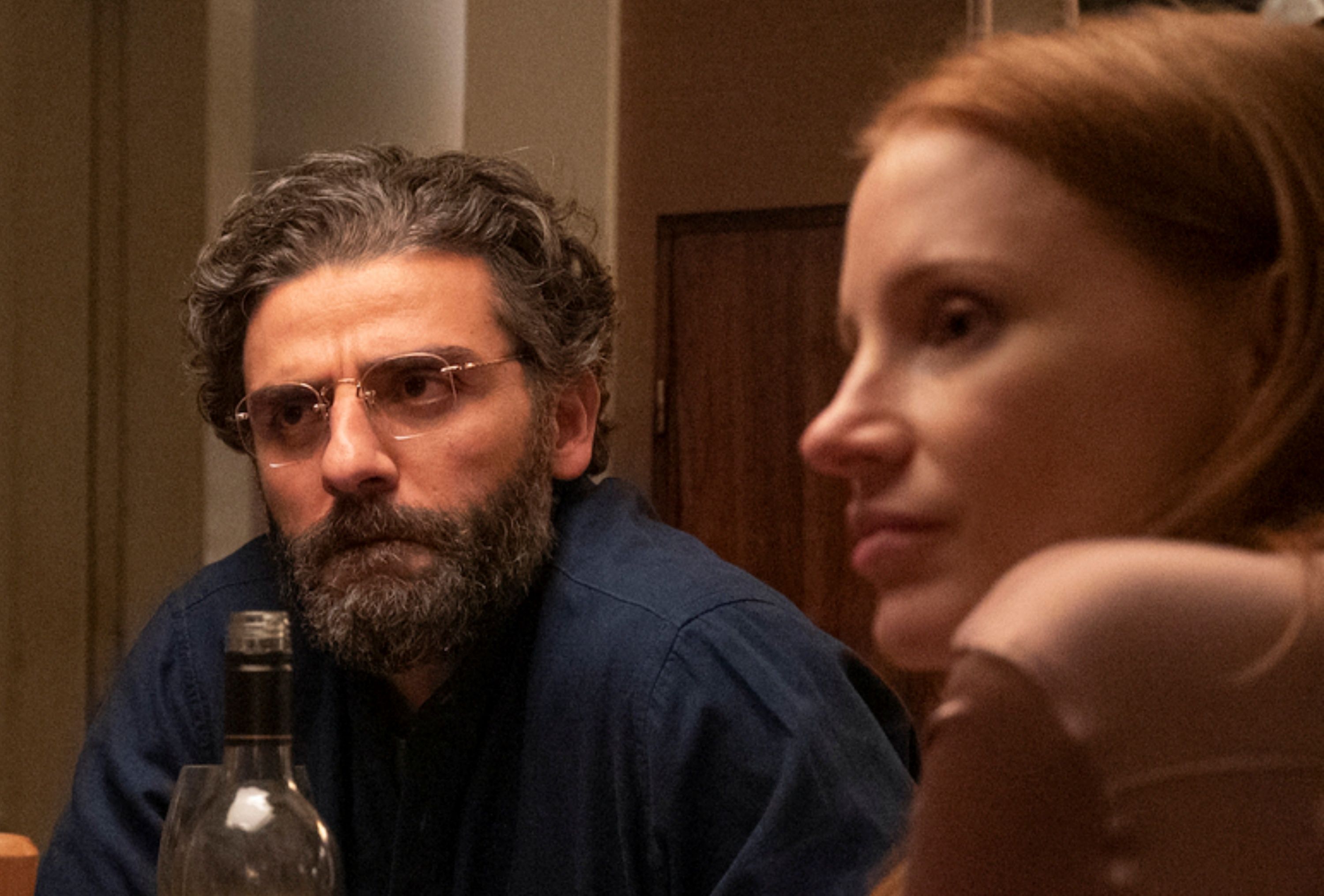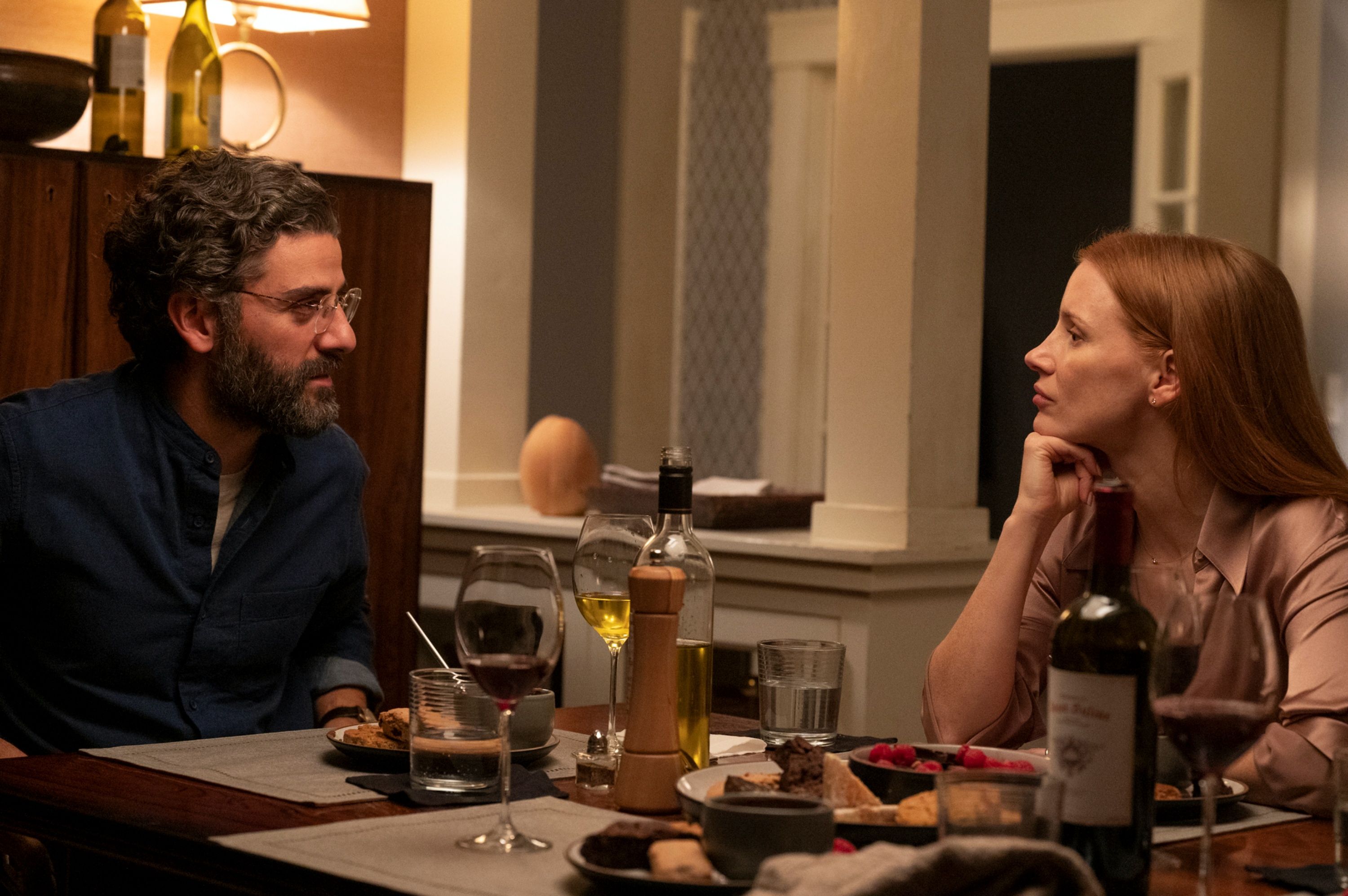From Hagai Levi (The Affair, In Treatment) and adapted from the Ingmar Bergman classic Swedish TV series, the HBO limited series Scenes from a Marriage examines marriage, monogamy and divorce as it follows Mira (Jessica Chastain), an ambitious career woman who is feeling unfulfilled, and Jonathan (Oscar Isaac), a philosophy professor trying to keep their relationship intact. As individuals, they both view that relationship very differently, but they also both realize that there isn’t one thing that will tear them apart, lead them to heal, or help them figure out what’s next.
During this 1-on-1 interview with Collider, writer/director Levi, who developed the project for American television, talked about how he came to be retelling this story, why he chose to break the fourth wall with each episode, wanting to stick to the structure of the original series, why he feels that multiple seasons are not the ideal way to tell a story, watching what Isaac and Chastain brought to their roles, how the ending of the story evolved, and what he hopes to do next.
Collider: I appreciate you talking to you about this. I had all of the emotions when I was watching this, which I’m sure is very much the point. What led you to decide to include the behind the scenes moments before each episode and show the crew in their masks? I’ve never seen anything like that and I just thought it was fascinating, so I’m curious about why you felt that was important?
HAGAI LEVI: It was an instinct. I felt already that there is something a little bit artificial or not totally realistic in the show, for some reason, and I wanted to make it a point, every week, that this is not actually really a couple who lives in Boston. This is a set and this is actually true for everyone. It’s much more abstract than that. Its’ a fable, in a way. It’s like to say, “Hey, let’s discuss monogamy. Let’s discuss marriage. Let’s not just focus on these specific circumstances and make it more of a discussion of a general principle.” There were many reasons [for doing it]. It was weird to shoot a show at that time without showing the pandemic. A lot of things came together and we decided to try it. If it didn’t work, we would just remove it, but it was so fun. All of the crew became part of the production, so it was nice.
It’s especially interesting when they’re in this house that’s so important to them, but then you pull away and it’s just a room on the set. It’s fascinating to see everyone in their masks while you’re telling a story that’s so intimate. It’s strange how much it makes you feel more connected to the characters and the actors.
LEVI: I’m so happy to hear that. Thank you so much.
How did this come about for you? Was it you specifically wanting to give your own take on Scenes from a Marriage, or did somebody approach you with the idea?
LEVI: It wasn’t my idea at all, actually. Scenes from a Marriage was most influential piece on my work, ever. I watched the series first on television, on Israeli TV when I was 18. I was shocked. It was totally shocking. In a way, it made me study cinema. It inspired In Treatment and The Affair. It was there, all the time. At a certain point, seven or eight years ago, I was approached by the family, by Daniel Bergman, the son of Ingmar Bergman, who had the idea of remaking it and thought, for some reason, that I could be the right person to do it, although I’m not American at all. I couldn’t resist the idea. But at the same time, I didn’t know what to do. Why? Why should we do that? It took some time to get the answer of why. But he pushed me and trusted me, which was very, very important. I had the support from the Bergman family and the Bergman Foundation. They gave me their blessing.
Is that intimidating? Is it scary? Is it exciting? Is it all of those things, at the same time?
LEVI: Exactly, all of them together. But it was on my desk for seven years, until I found a way to do it. I had to have an answer for why I should do it and why I was the one to do it.
You explored marriage and infidelity in The Affair, but you had a much longer period of time. That show went on for five seasons, and here you have five episodes. What’s it like to tell a story in five episodes and really explore this relationship in the five hours that you have?
LEVI: Every time, I wanted to do less. I’m starting to feel that five season is never justified. I like more the British way of six hours, and then another six hours, and that’s it. The season thing is a very commercial decision, more than everything else. That’s how I feel. Here, I had the original, so it was very easy for me to just follow what’s there. I took out one episode. Originally, it was six. Mainly, I had this very specific structure, which I wanted to follow. I wanted to experiment with the idea of updating it or having another interpretation for it, so I took it even further than the original. It’s even more radical, in the way that it’s only in one place, unlike the original. It’s in one house, and most of the time, it’s in real time without jumping in time at all. That was a great experiment to do.
Everything is centered around this relationship, but we don’t see them at work, out running errands, hanging out with friends outside of the home, or really anything that they’re doing outside of their dynamic. How did you find the experience of telling their story, in that way? Are there challenges specific to containing a story like that?
LEVI: I had the experience with In Treatment, and this was quite the same. You saw a person every week, with him only telling what happened, and you never saw him outside of the clinic or in any other circumstance. It’s against everything that they teach you in school, which is, show don’t tell. And I tell and don’t show, which is totally interesting for me. I feel that the way people tell something is often more important than what really happened. It was something I had experienced and I liked it very much. I feel good when I have rules. Probably because I grew up as a religious person, I feel that every time I have a project, I set up some rules and laws, and then I feel free to work within these rules. That probably has something to do with it.
This was originally going to be Oscar Isaac and Michelle Williams in the roles. When you wrote this, did you write that role with her in mind, or did the casting come after you’d written the show?
LEVI: No, the casting came afterwards. I started the casting process four or five years ago, just to start to feel it and so I had some names, theoretically. Jessica [Chastain] was always the top of my list. When I wrote the pilot and we were greenlit for a series, then the process started. Even before Michelle Williams, there was another one. Jessica was not available. I was heartbroken by that. And then, COVID started, so a lot of projects got canceled. And Oscar was there and he was hoping for Jessica. They’re very good friends. They know each other from Juilliard. For me, it was a miracle that a month and a half before shooting, suddenly Michelle had another commitment and she had just given birth, and Jessica was suddenly available between something else.
What was it like, as a director, to watch Oscar Isaac and Jessica Chastain together and see what they brought to this?
LEVI: I think watch them is a very nice way to put it. A lot of times, I felt that my job was not doing much except for watching them doing it and not disturbing them, and creating a safe atmosphere for them to do it. That was very important for all of us. They had this unbelievable chemistry between them. We had a lot of rehearsal. We had more than a month of rehearsal, and we shaped the text. Once it was there, most of my job was done. They were not acting. It was so crazy. Afterwards, we all felt the same thing, like we’d been in another planet for a couple of months, in this COVID world, on this small stage, out of the city. Everything felt so weird, but at the same time, contributed to this intensity very much.
Did you always know what the end point of the story would be?
LEVI: Well, I had the original, so I followed the original. I didn’t want to divert from the original. In every episode, the story always followed the original, changing everything, but keeping the structure and the story of every episode. So, I had this structure from the original, but I felt I needed to do something different than the original ending, which was saying something else about relationships, marriage, and divorce. Instead of saying how awful marriage is and how this institution kills love, like Bergman said, I wanted to say something about how hard it is to separate from each other. That idea came through the writing. It wasn’t there from the beginning.
Do you know what’s next for you? Do you want to keep working in television, or would you like to also direct a feature film?
LEVI: I feel very at home in television. I feel that it allows me to play with structures, to play with conceptual ideas, and to be very intimate. But my next project might be a film, taking place during World War II in Amsterdam, based on a diary by a Jewish woman. It’s a book that really changed my life.
Scenes from a Marriage airs on Sunday nights on HBO.




